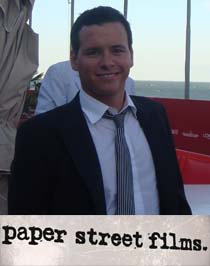 Who: Benji Kohn co-founded Paper Street Films in 2007 with friends/filmmakers Austin Stark and Bingo Gubelmann. The three have produced five feature-length films over that period, including Werner Herzog’s, My Son, My Son, What Have Ye Done, and are currently in post-production with Tony Kaye’s, Detachment. Their recently-produced film, Repo Chick from writer/director Alex Cox, opens at New York’s IFC Center on January 14th, and a week later at the Downtown Independent in Los Angeles on January 21st. (Repo Chick photos courtesy of Industrial Entertainment)
Who: Benji Kohn co-founded Paper Street Films in 2007 with friends/filmmakers Austin Stark and Bingo Gubelmann. The three have produced five feature-length films over that period, including Werner Herzog’s, My Son, My Son, What Have Ye Done, and are currently in post-production with Tony Kaye’s, Detachment. Their recently-produced film, Repo Chick from writer/director Alex Cox, opens at New York’s IFC Center on January 14th, and a week later at the Downtown Independent in Los Angeles on January 21st. (Repo Chick photos courtesy of Industrial Entertainment)
NY film incentives: State film production tax credit of 30%. Non-New York State-shot projects that complete 75 percent of their post-production work instate qualify for a 10% credit.
How much did the past films of Alex Cox play a role in your decision to produce Repo Chick?
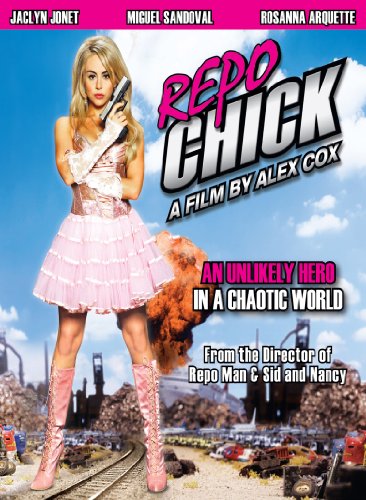
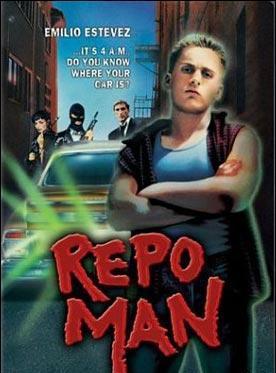 It was a large part of our decision. You know, we all grew up on Repo Man. And it being a cult film, and just completely unique and very interesting, very counter-culture sort of film — you just grew up sort of respecting and loving Alex for that unique vision and nontraditional viewpoint. I mean, he was 100% why we made it, because we loved his previous films. We loved Sid and Nancy. We were excited to work with him.
It was a large part of our decision. You know, we all grew up on Repo Man. And it being a cult film, and just completely unique and very interesting, very counter-culture sort of film — you just grew up sort of respecting and loving Alex for that unique vision and nontraditional viewpoint. I mean, he was 100% why we made it, because we loved his previous films. We loved Sid and Nancy. We were excited to work with him.
We were sent the script from Alex, and Eric Bassett of Absurda — the foreign sales company — and we ended up financing and producing the film, along with Daren Hicks, Simon Tams and Eric Bassett. It was a great collaboration and experience.
 Basically, the entire film is shot on green screen. There’s maybe one scene that isn’t. And Phil Tippett did all the FX for the film. The majority of it was shot in Los Angeles, and then Tippett Studios is up in San Francisco. The film was actually sort of a collaboration between Alex and Tippett. I mean, without them agreeing it would’ve been next to impossible to make a green screen movie on an independent budget, it never would have come to fruition. It was great to be part of their collaboration.
Basically, the entire film is shot on green screen. There’s maybe one scene that isn’t. And Phil Tippett did all the FX for the film. The majority of it was shot in Los Angeles, and then Tippett Studios is up in San Francisco. The film was actually sort of a collaboration between Alex and Tippett. I mean, without them agreeing it would’ve been next to impossible to make a green screen movie on an independent budget, it never would have come to fruition. It was great to be part of their collaboration.
We have a finance mechanism, but our company’s driven by the projects we respond to creatively. We’ve been successful, because we’re sort of a one-stop shop for filmmakers. We can be the development, brick-and-mortar, as well as the financing,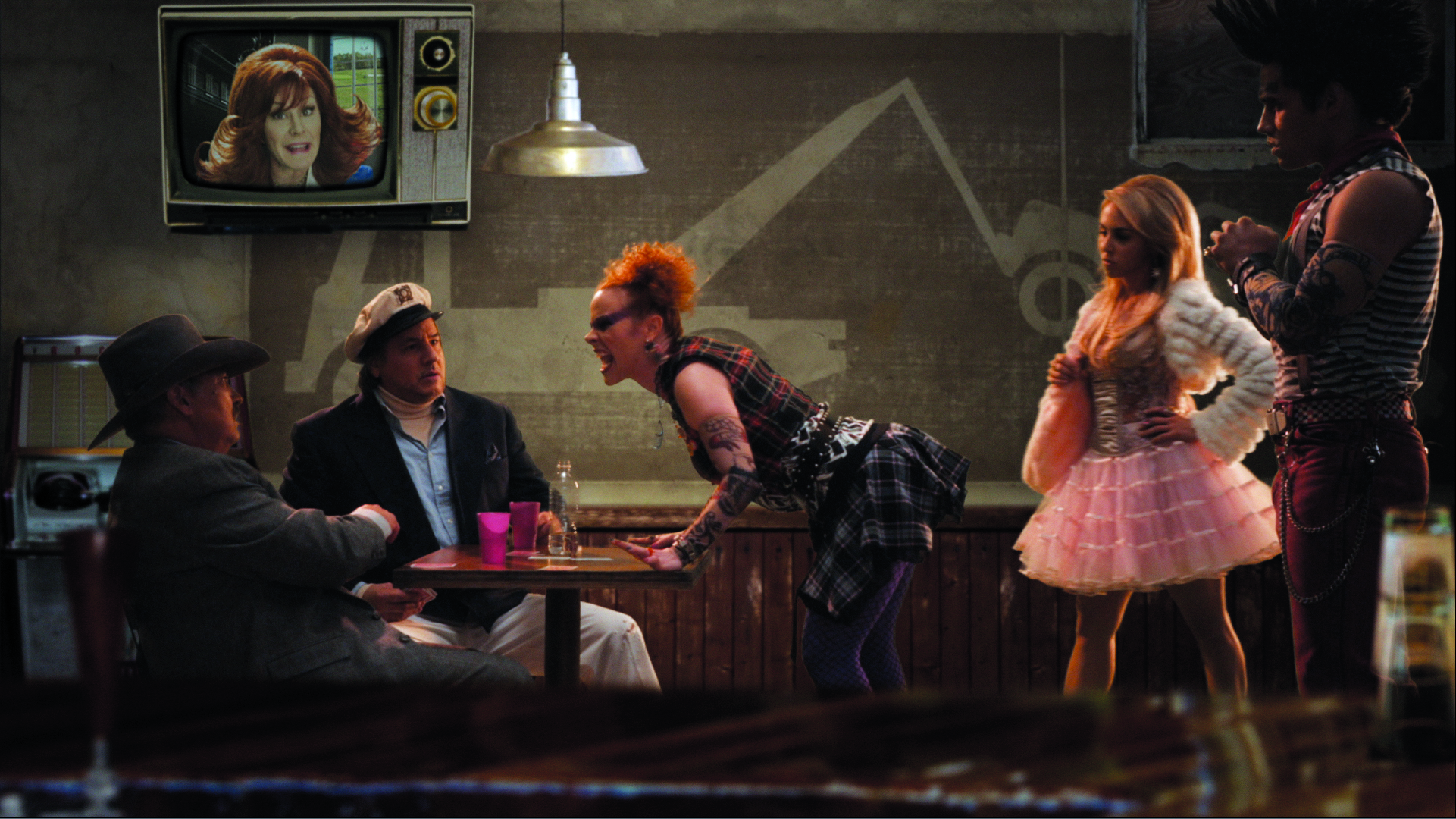 and take things from start to finish.
and take things from start to finish.
We always knew Repo Chick was going to go to IFC theatre. It’s not a wide release. It’s something that this filmmaker has a great niche of followers, and hopefully all the Alex Cox fans out there go out and see his latest creation – his latest opus.
How did you come to be an executive producer on My Son, My Son, What Have Ye Done?
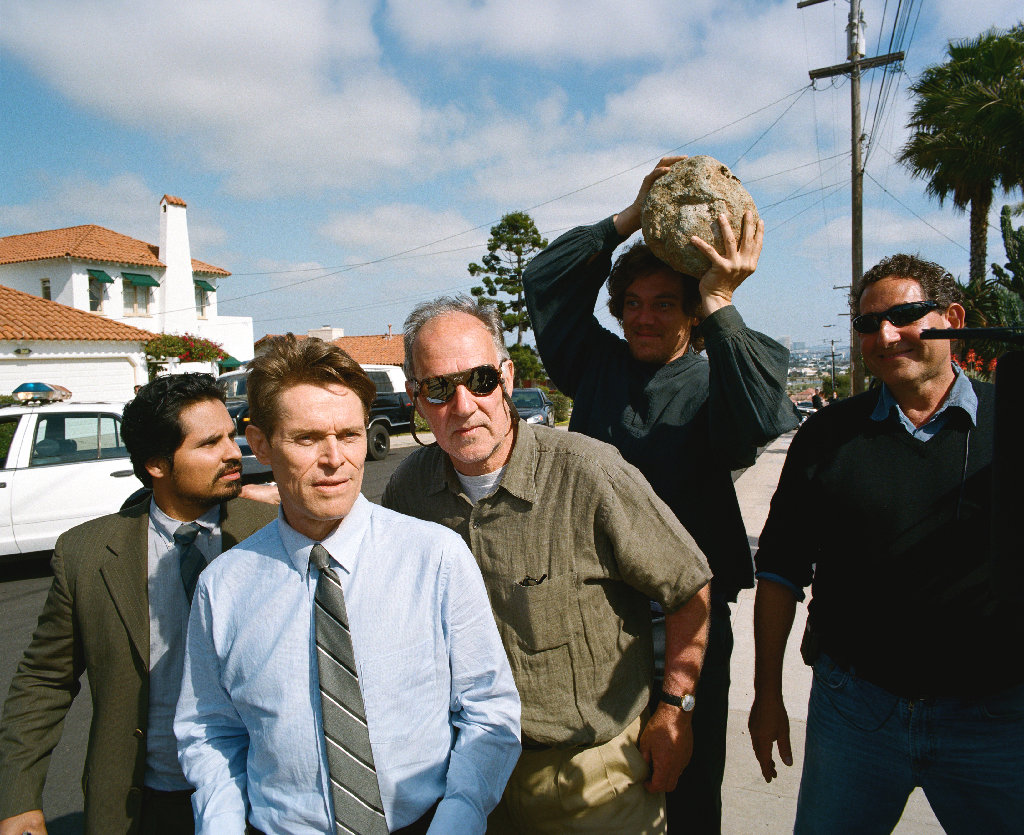 Through Eric Bassett of Absurda. We have a friendship with him, and he was producing My Son, and we came on as executive producers — both financially and creatively. Werner was great. He was very clear in his vision. Werner very much knew from the beginning what he wanted, and he was able to execute that.
Through Eric Bassett of Absurda. We have a friendship with him, and he was producing My Son, and we came on as executive producers — both financially and creatively. Werner was great. He was very clear in his vision. Werner very much knew from the beginning what he wanted, and he was able to execute that.
Because you love a director, doesn’t mean creatively that a project is right for you. 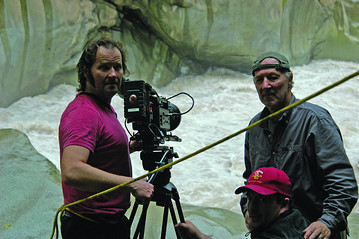 So, we had to read his script, and love it. That was really the first step. And we have financial models that we run our projects through. And as much as we love things as just film fans, as a company we have to look out for our investors. So, we insure that we also think things are a good investment, whether it’s Werner Herzog or somebody else. You still have to meet that criteria.
So, we had to read his script, and love it. That was really the first step. And we have financial models that we run our projects through. And as much as we love things as just film fans, as a company we have to look out for our investors. So, we insure that we also think things are a good investment, whether it’s Werner Herzog or somebody else. You still have to meet that criteria.
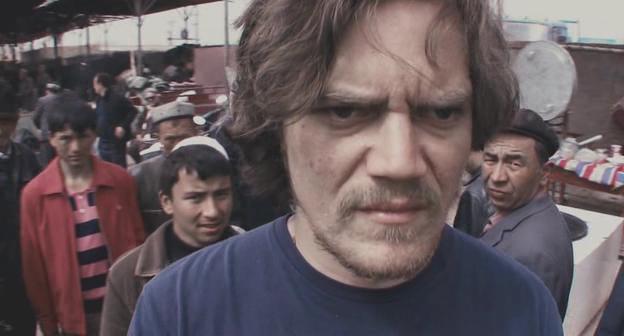 Werner knew what he wanted to do from the beginning when he co-wrote the script. He knew he was making this on an independent budget and he had those locations in mind. He had shot Fitzcarraldo in Peru, so he knew that place well. Mexico and Canada, we just drove to them. [Filming in Kashgar,] China was sort of the big one. That was the hardest one to plan and understand, but he very much knew what he wanted to do, and everything was done very lean and mean. And, thankfully, everything worked out. We wanted him to do what he wanted, make the movie he saw [and] wanted to make.
Werner knew what he wanted to do from the beginning when he co-wrote the script. He knew he was making this on an independent budget and he had those locations in mind. He had shot Fitzcarraldo in Peru, so he knew that place well. Mexico and Canada, we just drove to them. [Filming in Kashgar,] China was sort of the big one. That was the hardest one to plan and understand, but he very much knew what he wanted to do, and everything was done very lean and mean. And, thankfully, everything worked out. We wanted him to do what he wanted, make the movie he saw [and] wanted to make.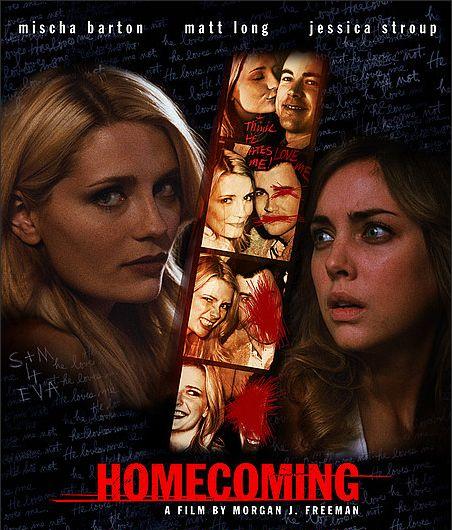
Why did you shoot Homecoming in Pittsburgh, Pennsylvania?
It was a matter of financing and the tax credit is how we chose Pittsburgh. We needed to shoot in a wintery locale, and there were maybe three or four options that we were choosing between, and ultimately we chose Pittsburgh because of the tax credit, and because it made the most sense in terms of the crew and stuff like that. Pittsburgh is a great city to shoot in, they have excellent crews. Homecoming wasn’t the only movie being shot at the time. They have a bunch of crews there, so it’s an excellent place to shoot. We’d definitely go back.
Compare your experiences using State film incentives in California and New York.
California, there’s a long line for the tax incentives. We’ve shot movies there, and never actually received any rebate for California. We have shot movies in Pittsburgh, Pennsylvania and New York, and we’ve received the rebate in those situations. The tax credit is a big part of your decision-making, because it’s a necessary component of you’re financing.
The incentives in New York are great. The State of New York, the Mayor’s office, and the New York film department couldn’t be more helpful. They’re really easy to work with and they pay on time. It’s a smooth process. There are a lot of cities where, even if they promise an incentive, they’re not as experienced and there are so many more hiccups along the way — New York really has the whole process down pat.
There are definitely places beyond New York and California that we want to shoot. A lot are going to be driven by the tax incentive, because if you can shoot in a warm place — if that’s your criteria — you can consider Atlanta, Louisiana, Texas. If its not hurting the integrity of the movie you really want to shoot in a state that has a rebate. It’s a big part of the decision. In general though, I’d like to shoot a movie in a variety of places, a variety of countries.
What did the NYC locations in happythankyoumoreplease say about the film’s characters?
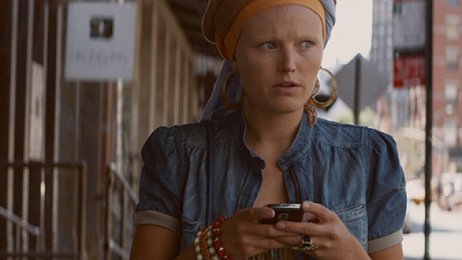 That was a New York film, and it was important for the film to have a Lower East Side feel to it. We basically shot it in lower Manhattan, Brooklyn and Queens. We used those three boroughs, but all the exteriors were basically the Lower East Side and the interiors, we went all over. We tried to give the movie a unique Lower East Side, something that hasn’t been seen before.
That was a New York film, and it was important for the film to have a Lower East Side feel to it. We basically shot it in lower Manhattan, Brooklyn and Queens. We used those three boroughs, but all the exteriors were basically the Lower East Side and the interiors, we went all over. We tried to give the movie a unique Lower East Side, something that hasn’t been seen before.
Paper Street is looking to tell all kinds of stories and so far none of them have been about affluent New Yorkers. 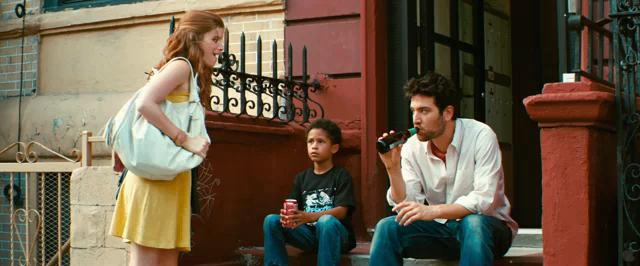 So if somebody has a larger apartment than a studio apartment, it’s because they’re not living in a wealthy part of town. We’ve tried in all of our movies to be mindful of that, but we’ve also been mindful of the fact that the average New Yorker lives in a 600-square foot apartment or smaller, not a massive three-bedroom place when they’re making $50,000 a year.
So if somebody has a larger apartment than a studio apartment, it’s because they’re not living in a wealthy part of town. We’ve tried in all of our movies to be mindful of that, but we’ve also been mindful of the fact that the average New Yorker lives in a 600-square foot apartment or smaller, not a massive three-bedroom place when they’re making $50,000 a year.